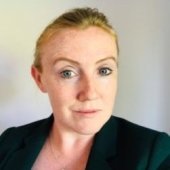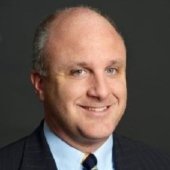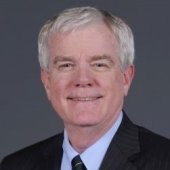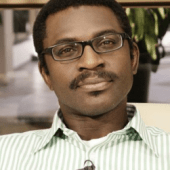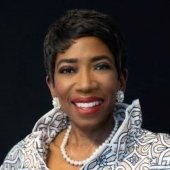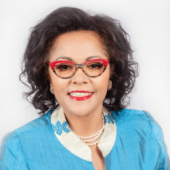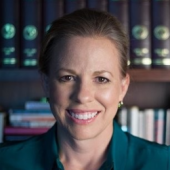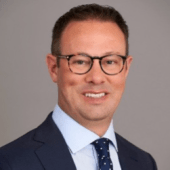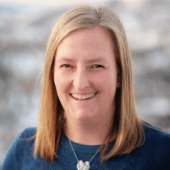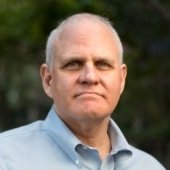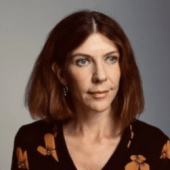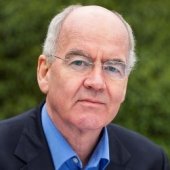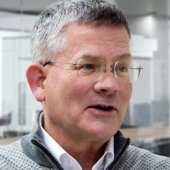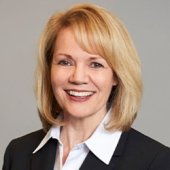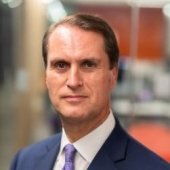IN BRIEF
- 4:23 - The most fundamental shift in the last 10 years has been large-scale acceptance of the idea in the investment community that sustainability factors impact risk and return, and that in order for a company to succeed over the long term, that company needs to manage sustainability factors effectively.
- 13:01 - Investors value industry-based standards — they’re cost-effective for companies — but it is a very significant education effort around shifting the thinking of traditional accounting standard-setting and regulation of financial disclosure to include an industry lens. That is relatively new and different.
- 15:50 - What we’re trying to do with sustainability-disclosure standards is create a common language for companies and investors to communicate about sustainability performance, but very important is that it’s not disclosure for disclosure’s sake. It’s disclosure to improve decision-making.
Janine Guillot is CEO of the Value Reporting Foundation, a nonprofit that helps businesses and investors develop a shared understanding of drivers of enterprise value. Prior, Janine was CEO of the Sustainability Accounting Standards Board foundation, or SASB. Under her leadership, SASB and the International Integrated Reporting Council merged in 2021 to become the Value Reporting Foundation, and on August 1, 2022 the Value Reporting Foundation consolidated into the IFRS Foundation and became a part of the International Sustainability Standards Board, or ISSB. Bob Hirth, a senior managing director with Protiviti and former vice chair of the SASB, interviews Janine about what’s on the agenda of the ISSB and the future of ESG standard-setting and reporting.
Future of sustainability and ESG standards with Janine Guillot, Value Reporting Foundation CEO
Joe Kornik: Welcome to the VISION by Protiviti interview. I’m Joe Kornik, Editor-in-Chief of VISION by Protiviti, a global content resource looking into the future to examine big themes that will impact the C-suite and executive boardrooms worldwide.
Today, we’re exploring the future of ESG and its strategic implications for people, process and the planet, and I’m excited to welcome in Janine Guillot, CEO at the Value Reporting Foundation, a nonprofit that helps businesses and investors develop a shared understanding of drivers of enterprise value. She’s also a special adviser to the ISSB chair at the IFRS Foundation. Prior, Janine was CEO of the Sustainability Accounting Standards Board foundation, or SASB. Under her leadership, SASB and the International Integrated Reporting Council merged in 2021 to become the Value Reporting Foundation, and on August 1, the Value Reporting Foundation consolidated into the IFRS Foundation and became a part of the International Sustainability Standards Board, or ISSB.
Today, I’m going to hand off the interviewing duties to my Protiviti colleague Bob Hirth. Bob is a senior managing director and vice chair of the SASB standards board. Bob, I’ll turn it over to you to begin.
Bob Hirth: Thanks, Joe. Janine, it’s great to have you with us today. Thanks for taking time to talk about this very important topic.
Janine Guillot: Thanks, Bob. It’s great to be here.
Bob Hirth: I know your background, of course, because you’ve worked at SASB for about five years or more, but I’d like to have you give the audience a little thumbnail of your background and experience, because as I think about it, all of the different things you have done in your career have built to create this role you have around sustainability and ESG, your role at the SASB, the Value Reporting Foundation and now the ISSB.
Janine Guillot: Thanks, Bob, and thanks for saying that, because I do feel like what I’m doing today collectively builds on everything I’ve done. If I go all the way back to the beginning of my career, I started as a CPA, as an accountant, did auditing, and then spent years in technical accounting, accounting policy, commenting to accounting standard-setters. That was the beginning of my career, and then I broadened into CFO roles, broadened into chief operating officer roles and investment management, and finally, was at CalPERS as chief operating investment officer in pension funds.
And it was really that I got very interested in sustainability, because I led the development of our investment beliefs, and those investment beliefs laid out the concept that we wanted to integrate sustainability, or ESG, into investment decision-making, because we believe they impact long-term risk and return. And the challenge was, we didn’t have the data or the information to do that in any kind of a rigorous or scalable or cost-effective way, and that’s what led me to SASB. SASB brought together the interests in integrated sustainability and decision-making with my chief operating officer roles, with experience with information and data and technology, with my ancient experience in accounting and auditing.
Bob Hirth: Great. Thanks. I know that as you’ve been involved in those roles and with the SASB and the Value Reporting Foundation, you’ve seen an evolution of sustainability, corporate social responsibility, ESG. Take us back through some of your observations about the milestones that have occurred in this evolution.
Janine Guillot: I’ll talk about that from two directions: the milestones in the investment side, and then the milestones in the reporting landscape side. On the investment side, the most fundamental shift in the last 10 years has been large-scale acceptance of the idea in the investment community that sustainability factors impact risk and return, and that in order for a company to succeed over the long term, that company needs to manage sustainability factors effectively—and I mean sustainability very broadly: human capital, community relationships, environmental—and have strong governance over all of those issues, and that if you’re a long-term investor and you’re trying to evaluate a company, you need information beyond what you’d get traditionally out of financial statements. You need a broader information set about how a company is managing ESG factors. That’s been a massive change in the last 10 years.
On the reporting-ecosystem side, SASB gets a lot of credit for this: Our founder, Dr. Jean Rogers, her vision was that you could take the discipline of accounting standard-setting and apply that same discipline to sustainability disclosure, and what that ultimately results in is putting sustainability information on an equal footing as traditional financial information in terms of importance, and we’ve seen that shift in the last two to three years, Bob.
Bob Hirth: You talked about the investor. We’ll call the investor a stakeholder, but today we know that there are other stakeholders. Can you talk about who some of those other stakeholders are and why they also have an interest in this topic in addition to the traditional stakeholder, the investor?
Janine Guillot: If you think about traditional corporate reporting—if you think back 20, 30 years—the primary user of corporate reporting was fairly homogenous. Let’s call them, broadly, investors and other providers of financial capital, or underwriters of financial risk. They’re the primary users of much corporate reporting. Today, it’s a very different world. Today, employees are interested in corporate reporting, civil society and NGOs, customers, communities, regulators, a much broader array of regulators than what may have been traditionally interested. So, corporate reporting has gone from having this one relatively homogenous user—traditional users of financial statements—to being something that is of interest to a much broader array of stakeholders.
Now, I am a big believer in one size doesn’t fit all. I don’t think that information that’s targeted at investor users is necessarily going to be the information that a customer wants to see or that an employee wants to see. Companies have to think about reporting just as a communication strategy, and you need to tailor your communications to the user, but it is important to acknowledge that there’s a very broad array of stakeholders for corporate information now.
Bob Hirth: Great. Thank you. Janine, your background has included being the CEO of the Sustainability Accounting Standards Board foundation, the CEO of the Value Reporting Foundation, which was a combination of several organizations, and now, as we look at not your background, but your future, you’ve recently been appointed as what I’ll call a special adviser to the International Sustainability Standards Board. What does that entail, Janine, and what’s your view of what’s been accomplished, what they’re trying to accomplish, or what’s on your agenda for this ISSB?
Janine Guillot: The reason I am transitioning into that adviser role is that the Value Reporting Foundation is going to merge into the IFRS Foundation to help establish the ISSB. So, that means that the SASB Standards and the Integrated Reporting Framework will become part of the IFRS Foundation and tools that the ISSB can use, and what the ISSB is trying to do, we’re trying to be responsive to market demand. We’ve heard market demand for years for simplification and consolidation of the sustainability disclosure landscape. For a long time, it’s been a voluntary world, it’s been a lot of innovation and it’s been a lot of different organizations that have naturally developed to meet different needs.
So, like all things, you often think about that change curve where you go through innovation to maturity and scale, and that change curve is what we’re going through right now in the sustainability-disclosure landscape. And so we always felt strongly, going all the way back to the SASB days, that ultimately, to be responsive to market demand for simplification, entities would have to consolidate, and so that’s what’s happening. Several entities are consolidating to support the International Sustainability Standards Board, and the goal of the International Sustainability Standards Board is to establish a global baseline of sustainability-disclosure standards that can be used by companies and investors around the world, and used by regulators in multiple jurisdictions, so investors have access to comparable information.
Bob Hirth: Janine, as a reference point for our audience, to people who want to learn more about the International Sustainability Standards Board, where would they look for more information?
Janine Guillot: The IFRS Foundation website. The ISSB has a LinkedIn presence. You can sign up for ongoing updates, and then you should also go to SASB.org, make sure you sign up for ongoing updates around the SASB Standards, and those communications will be coordinated going forward.
Bob Hirth: Great. The way that you laid this out—and you’re so articulate about this—it seems so well-organized and so easy, but we know that’s not true. What do you think the challenges are? What are the obstacles or the hard points going to be about this ESG and sustainability journey, standard-setting, and so on?
Janine Guillot: Bob, you being a former SASB Standards board member, probably understand one of the biggest challenges better than most. One of the things that is unique about sustainability disclosure is that it is very important to think about sustainability disclosure through an industry lens, and that’s because the issues that are relevant to financial performance and the resilience of a business—the issues vary by industry.
Water is a great example of that. Water is an inherently very significant issue in the agriculture industry or in the beverage industry. Water may be a less significant issue in the consulting industry, and so when you think about sustainability disclosure, it’s important to think through an industry lens.
As SASB, particularly, which has always developed industry-based standards, merges into the ISSB, the accounting-standards infrastructure and regulatory-disclosure landscape historically has not been built around industry-based standards, and so investors value industry-based standards—they’re cost-effective for companies—but it is a very significant education effort around shifting the thinking of traditional accounting standard-setting and regulation of financial disclosure to include an industry lens. That is relatively new and different.
Bob Hirth: Yes, I completely agree with you—very important. Janine, with your background, do you think about yourself as Janine Guillot, business consultant? You’re out talking to companies, and you’re presenting to the boards, and with your seniority and experience, lots of companies would like to talk to you. If you went out there, what advice would you be giving them? What should they be doing, or focused on, to ensure that they succeed in this arena?
Janine Guillot: Probably the most important thing is to not think about sustainability as a silo. Ultimately, this is not to think about it as a silo or not to think about it only as about disclosure. It’s much deeper than that. How is sustainability integrated into business strategy, into governance, into risk management? Then, disclosure becomes the outcome of those processes once it’s clear how sustainability is relevant to your business and your industry, and how it’s integrated into strategy and risk and governance, and it’s how to disclose the relevant information that’s relevant to your business.
Bob Hirth: Very good. Thanks. Our program here at Protiviti is called VISION, so you might look at that there’s a forward-looking connotation to that. So, as you look forward—and let’s go out x years, or a decade—what is your vision for this topic? What do you think is going to happen? What would you like to happen? Where would you like this to go?
Janine Guillot: We often use the analogy to financial accounting standards, which we all take for granted now, but the reality is, they haven’t existed forever. Generally accepted accounting standards have only come into being since the late 1930s, when people even started to talk about them for the first time, and it’s been decades for them to mature.
What we’re ultimately trying to accomplish is generally accepted sustainability-disclosure standards, and what financial accounting standards did is, they created a common language between companies and investors to communicate about financial performance. And what we’re trying to do with sustainability-disclosure standards is create a common language for companies and investors to communicate about sustainability performance, but very important is that it’s not disclosure for disclosure’s sake. It’s disclosure to improve decision-making. That’s decision-making by companies and decision-making by investors, and that will be the ultimate test of success: Can we develop standards that communicate decision-useful information in a cost-effective way?
Bob Hirth: Janine, again, thanks so much for your time, and I know you’re a busy traveler with all your new responsibilities, but, again, we really appreciate your time today and your insights.
Janine Guillot: Thanks, Bob.
Joe Kornik: Thanks, Bob, and thanks, Janine, for that great conversation, and thank you for watching the VISION by Protiviti interview. For Bob and Janine, I’m Joe Kornik. We’ll see you next time.
Janine Guillot is CEO of the Value Reporting Foundation, a nonprofit that helps businesses and investors develop a shared understanding of drivers of enterprise value, including how value is created, preserved or eroded over time. Prior, Janine was CEO of the Sustainability Accounting Standards Board Foundation (SASB). Under her leadership, SASB and the International Integrated Reporting Council (IIRC) merged to become the Value Reporting Foundation.
Bob Hirth is a Senior Managing Director at Protiviti and provides a broad array of senior leadership and counsel in the areas of internal control, internal audit, people development, client relationships and revenue growth. Bob was one of the founding managing directors of Protiviti at its inception in 2002. He was appointed to the standard setting board of the Sustainability Accounting Standards Board (SASB) upon its formation in 2017 and serves as a vice chair of the board. He currently heads SASB’s Technology and Communications sector committee.
Did you enjoy this content? For more like this, subscribe to the VISION by Protiviti newsletter.


